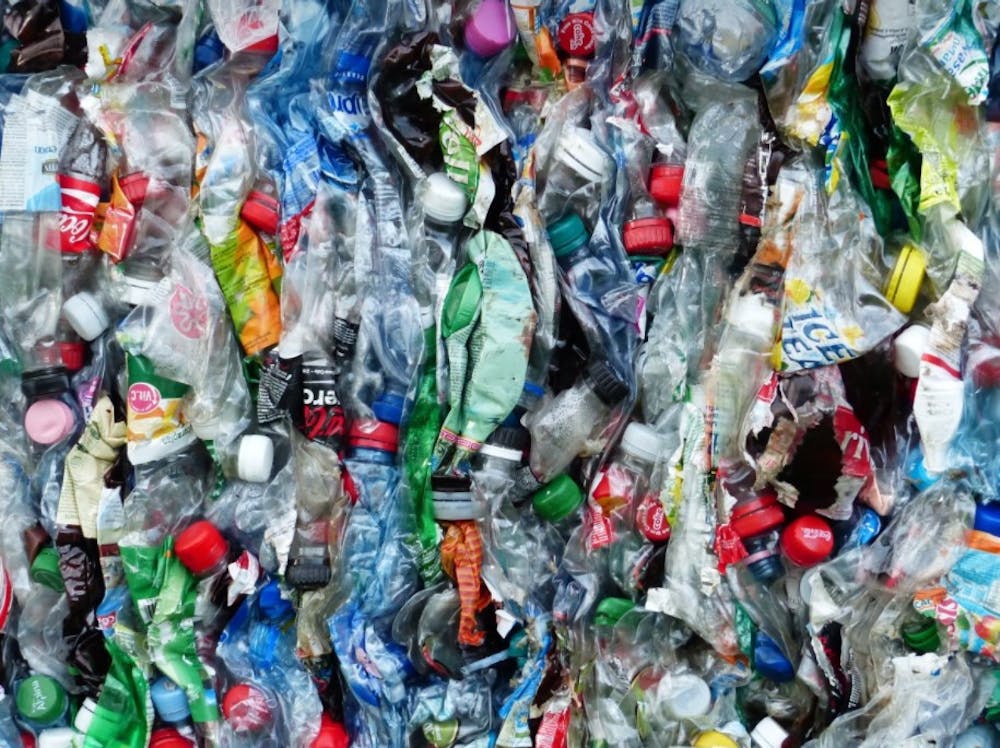The Story of Plastic is a 2019 documentary by Deia Schlosberg that provides a sweeping look into the human-made crisis of plastic waste and its effect on the planet and its population. The film illustrates an environmental catastrophe: rivers and oceans filled with plastic waste, skies filled with poisonous emissions from plastic production and fields of garbage.
The Baltimore Collegetown Network hosted “The Story of Plastic: Individual Film Screening and Panel Discussion” on Oct. 29. Held on Zoom, the event featured guest speakers Brooke Lierman, Democratic delegate of District 46 in Maryland, and Terry Thompson, a community organizer with the South Baltimore Land Trust.
Among the participants was Molly Hayeslip, program manager for the Baltimore Collegetown Network. In an interview with The News-Letter, she expressed her belief that the images in this documentary were most impactful when she watched it.
“It really struck me when they said that of all of the plastic that has ever existed, more than half was produced in the last 15 years, and 91% has never been recycled,” she said. “That was eye-opening.”
One question loomed over the panel discussion: How is Baltimore affected by the plastic waste crisis and what is being done to address it?
Lierman, known for her environmentally-friendly policies in the past, seeks to develop forward-thinking solutions to keep our environment and natural resources safe. When asked about how she overcomes obstacles to moving the community to zero-waste, Lierman looks to bills she attempted to pass that did not make it as far as she wanted.
“The first bill I filed was a plastic bag ban. Living in downtown Baltimore, I see everyday single-use objects: plastic bags, cups, Styrofoam containers,” she said. “It’s not something I wanted to see, and it’s not something I wanted my kids to be around. The bill went nowhere in 2015 and 2016.”
To combat this obstacle, she tried to find an environmentally-friendly bill that would be more agreeable in the House. She moved to create a bill banning Styrofoam. This bill gained traction in 2018 and was passed in 2019, making Maryland the first state in the country to ban polystyrene foam food containers and cups. Lierman attributed the passage of the bill to a shift in the green narrative.
“We saw a change in attitude about single-use plastic and single-use waste in Maryland and across the country,” Lierman said. “I think of the iceberg National Geographic cover... Nnews stories and visuals were coming covering where the waste was going to impact people.”
The National Geographic cover Lierman referred to is the June 2018 issue. Titled “Planet or Plastic?,“ the cover seemingly depicts an iceberg in a blue ocean. On closer examination, the viewer sees the iceberg is really a plastic bag, symbolizing that plastic bags have replaced icebergs in our oceans.
Thompson, who lives in South Baltimore, proposed his own ideas of how the city addressed its waste crisis. He voiced his optimism about fixing the crisis.
“It keeps me hopeful that my predecessors were able to get rid of the proposal of the country’s largest incinerator, which would’ve been built less than a mile from where I live,” Thompson said. “Having these past connections and knowing about their actions keep me hopeful.”
COVID-19 was a contention during the panel discussion. During the pandemic, there has been an increase of single-waste plastic and medical waste in the United States. The moderator asked what can be done in Maryland to mitigate these problems.
Lierman believes that Baltimore’s Office of Sustainability has been making progress toward environmentally-friendly policies at the city level.
“We have a great Office of Sustainability; they push others on a zero-waste plan moving away from incineration,“ she said. “They push for compost collections at farmers’ markets and they encourage work with small compost developers.”
At the state level, Lierman explained that they brought back the plastic bag ban in hopes that it will receive traction in the house and senate. Last year, the House passed the ban. The bill still needs approval from the Senate.
While single-use bans on plastic products are effective, Lierman hopes that she and her fellow policy-makers will begin to think of a more holistic solution to the plastic crisis.
She discussed extending producer responsibility. Many producers who make plastic packaging often use three or more types of virgin plastic instead of recycled plastic. The reasoning for this is because virgin plastic is cheaper. Pushing those producers toward using recycled plastic or having a tax for using virgin plastic could be a potentially successful environmentally-friendly policy.
Lierman is not aware of any bills that address the issue of increased medical waste. However, she suggested that they could be coming.
Audience members asked both speakers about what community members should be aware of and what they can do.
Thompson believes we should fight to get rid of the Wheelabrator Incinerator that exists in Baltimore. This incinerator produces more mercury, lead and greenhouse gases per hour than any of Maryland’s four largest coal power plants.
“It was placed 35 years ago in a neighborhood that didn’t want it,” he said. “Incinerators are only supposed to function for 25 years. It’s been going on 35 years and has a contract to continue to function for another 10 years. It’s the number one contributor to asthma in the area.”
Lierman advised community members to stay engaged with organizations that work on these issues such as the Sierra Club, Trash Free Maryland and the Office of Sustainability. She offered her contact information to those who want advice on staying engaged with eco-friendly practice.





